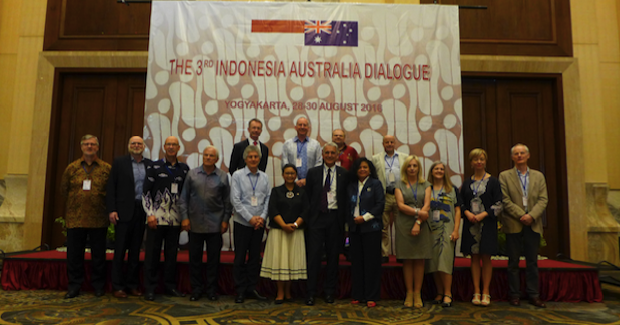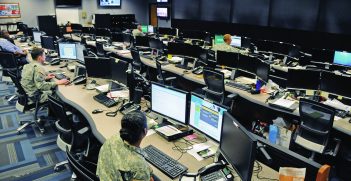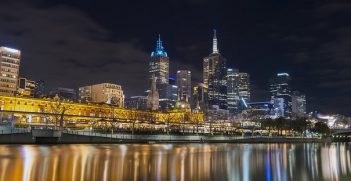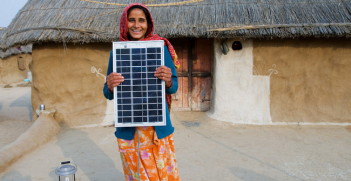A Changing Dialogue Between Indonesia and Australia

As Indonesia becomes a more significant global economic and strategic player, there is fertile ground for better connections with Australia. At the recent Australia-Indonesia Dialogue supported by the Australian Institute of International Affairs, participants nominated some ways for this to occur. Australia needs politicians who can look beyond making deals with Indonesia for domestic political gain; Indonesia needs politicians who understand the opportunities for cooperation with Australia.
Next year the number of Indonesian students coming to Australia to study vocational education courses is set to overtake the number doing traditional university degrees. This significant shift in what is arguably the strongest, most enduring link between the two very different neighbours is already generating a behind the scenes debate.
The debate underlines how the relationship has bounced back from recent diplomatic tensions and is now entering new territory as both countries cope with the commodities downturn and face up to common new strategic challenges. One camp sees the growth of vocational training as a deepening of the relationship—particularly in the economic space—after the difficulties caused by Australian espionage and Indonesia’s executions. But another camp sees this as a weakening of Australia’s links to Indonesia’s elite at a time when the country is undergoing an economic and political transformation and on a path to becoming the world’s fifth largest economy by 2050.
Education has been a foundation of the relationship since the old Colombo Plan days, underlined by how four ministers in the government of Susilo Bambang Yudhoyono were educated in Australian universities. In contrast none of the Joko Widodo ministry are known to have been educated in Australia and Widodo has not demonstrated any special interest in Australia, although there are plans afoot for him to visit later in the year.
It’s a testament to Indonesia’s emerging economic strength that it now funds more scholarships for its own students to study abroad than it receives in aid programs, including from Australia. This emerging change and new complexity in the relationship was at the heart of an Australia-Indonesia dialogue in Yogyakarta last month. The Australian Institute for International Affairs provided the dialogue secretariat in Australia.
The two senior figures from Australia, former deputy prime minister John Anderson and former multiple ambassador John McCarthy put the discussions squarely within the new regional security context of tensions between the US and China. Anderson, who has been to Indonesia more than any other country since leaving office, said a new multipolar world is emerging to replace the US-led system and Indonesia must been seen as a part of this for Australia.
McCarthy, a former ambassador to Jakarta, says Australia’s geographical location means that understanding the different, complex cultures in neighbouring countries is more important to Australian business and strategic planning than for any comparable peer country. “Australia taking a multi-polar approach has to deal with Indonesia. We cannot afford breaks in the relationship at the political level for relatively trivial issues because the stakes are just too great,” he said.
Indonesian Minister of Foreign Affairs Retno Marsudi lent weight to this idea after the recent diplomatic spats saying: “Sometimes we have a big disagreement but the most important thing is that we try to maintain our communications.” She said Indonesia had been inspired to start paying more attention to Indian Ocean issues by Australian encouragement and was now looking to Australia to help it play a greater role in the South Pacific.
The discussions followed a major opinion poll of perceptions in each country conducted by the Australia Indonesia Centre (AIC). The poll found Indonesians were much more optimistic about their economic future than Australians and more positive about Australia and future bilateral relations than Australians are about Indonesia. It underlined that as Indonesia sees itself as a more significant global economic and strategic player there is surprisingly fertile ground for better connections with Australia, but Australians are less focused on this opportunity. And this is despite Australian tourism to Indonesia hitting record in June.
The dialogue discussions identified several emerging challenges and opportunities.
One might be termed the 5/20 GDP challenge. Indonesians have become besotted with the widespread prediction they will be a top five economy by 2050. This is actually encouraging economic nationalism to the point that even quite worldly Indonesian figures strongly advocate domestic processing and import replacement. As diversified businessman Kris Sulisto puts this: “We would like to believe nationalism does not always mean protectionism. But we want to export furniture not timber.”
This nationalistic thinking comes despite Indonesia losing an estimated 800,000 jobs last year as its economy slowed. This is the number it needs to add each year to employ its growing young population and maintain stability.
Other voices, like Emirsyah Satar, who has moved into ecommerce after reviving the national airline Garuda, are more optimistic: “This is a good time to be doing business in Indonesia. Garuda opened up and became world class because they took away the monopoly,” he said.
At the same time Australians feared their country was ill-prepared for Indonesia to become a bigger economy than Australia at market prices in the next decade (it is already larger in PPP terms), when a slowing Australia may start to face questions about whether it is still qualified to be a member of the Group of 20.
Then there’s the question of whether the two countries are in a sort of democratic passing lane. Australians have seen Indonesia as a chaotic place through its 1950s election, its ‘guided democracy’ era and then the new democracy of the late 1990s. But now after being elected with no national assembly majority in 2014, President Joko Widodo has fashioned a working coalition to pass legislation and asserted authority over his ministry.
This has occurred as Indonesians have been bemused by instability in Australian government and alarmed by the emergence of anti-Muslim and anti-trade figures in the new federal parliament. It was noted that during the 10 years Yudhoyono served as president he watched a passing parade of five Australian prime ministers and seven opposition leaders.
Participants said Australia needed politicians who could look beyond the latest deal to bring home from Indonesia for domestic political gain. Indonesians needed politicians who understood the opportunities for cooperation with Australia that the AIC polling shows some of their citizens seem to have already identified.
With bilateral trade only representing 2-3 per cent of each country’s trade and low levels of officially recorded cross-border investment compared with other neighbouring countries, there was much debate about adequate commercial ballast.
But the emerging thinking based on anecdotal examples is that official figures don’t capture the smaller enterprise and services business now going on and the role of Singapore as the backdoor channel. One official cites the example of three Indonesian conglomerates who individually claim to have more invested in Australia than the official foreign direct investment figure for Indonesia of $1.4 billion.
Nevertheless with both countries sharing the pain of the resources downturn there is a focus on new areas of complementarity when in the past the two were more competitive commodities exporters. Agribusiness and tourism infrastructure are now being touted as sectors where there can be joint business activity which might surmount the growing protectionist sentiment they each face. Sources say Indonesians have recently invested in Australian tourism and are again looking at beef cattle property.
Former Labor foreign, trade and defence minister Stephen Smith told the dialogue that serving politicians in both countries could no longer run away from these challenges and opportunities as they sometimes did in the past because they had now agreed to a series of annual meetings of leaders and other key ministers.
But business figures meeting separately at the dialogue decided they should depend less on waiting for government to resolve problems and instead come up with agreed solutions to take to governments.
Greg Earl was a member of the steering committee for the third Australia-Indonesia Dialogue hosted by the Australian Institute of International Affairs and the Australia Indonesia Centre from 28-30 August in Yogyakarta supported by the Australian and Indonesian governments. He is an ANU Indonesia Project advisory board member and the former Asia Pacific editor of The Australian Financial Review. This article is published under a Creative Commons Licence and may be republished with attribution.





